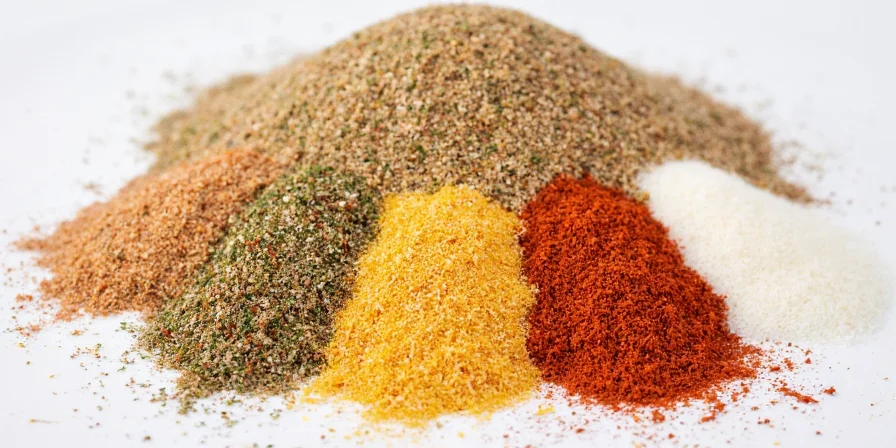Unlocking the Secrets of Food Seasoning: Spice Basics for Every Kitchen
Food seasoning is the art and science of enhancing the flavor of dishes through the use of various spices, herbs, and other flavoring agents. Whether you’re a seasoned chef or a home cook, understanding the basics of food seasoning can elevate your culinary creations and transform mundane meals into extraordinary experiences. In this article, we will explore the different types of food seasonings, their uses, and tips for incorporating them into your cooking.
What is Food Seasoning?
Food seasoning refers to the process of adding flavor to food using various ingredients. This can include salt, herbs, spices, and other flavor enhancers. The right seasoning not only improves the taste but also helps to bring out the natural flavors of the ingredients used in the dish.
The Importance of Seasoning
- Flavor Enhancement: Seasoning adds depth and complexity to dishes.
- Balancing Flavors: Proper seasoning can balance sweet, sour, salty, and bitter flavors.
- Health Benefits: Many herbs and spices have health benefits, including anti-inflammatory properties.
- Visual Appeal: Seasoning can enhance the presentation of a dish.
Types of Food Seasonings
Food seasonings can be broadly categorized into several types:
1. Salt
Salt is one of the most essential seasonings in cooking. It not only enhances flavor but also helps to preserve food. There are various types of salt available:
| Type of Salt | Use |
|---|---|
| Table Salt | Commonly used for general cooking and baking. |
| Sea Salt | Great for finishing dishes, as it adds texture. |
| Himalayan Pink Salt | Rich in minerals and often used in gourmet cooking. |
| Kosher Salt | Preferred by chefs for its coarse texture and ease of use. |
2. Herbs
Herbs are the leafy green parts of plants that are used to add flavor to dishes. Common culinary herbs include:
- Basil
- Parsley
- Cilantro
- Oregano
- Thyme
3. Spices
Spices are typically derived from the seeds, bark, roots, or fruits of plants. They can add heat, sweetness, and depth to dishes. Common spices include:
- Cumin
- Coriander
- Turmeric
- Paprika
- Black Pepper
4. Blends and Seasoning Mixes
Many cooks prefer to use pre-made seasoning blends to save time. Popular blends include:
- Italian Seasoning
- Cajun Seasoning
- Garlic Powder
- Chili Powder
How to Season Food Properly
Knowing how to season food properly is crucial to achieving the desired flavors. Here are some tips:
1. Start Small
When adding spices or salt, start with a small amount. You can always add more, but it’s difficult to correct over-seasoned food.
2. Taste as You Go
Tasting your food as you cook will help you to understand how the flavors develop and when to add more seasoning.
3. Consider Cooking Methods
Different cooking methods can affect the flavor of seasonings. For instance, roasting can intensify flavors, while boiling may dilute them.
4. Use Fresh Ingredients
Fresh herbs and spices typically have a more vibrant flavor than dried ones. Whenever possible, opt for fresh ingredients.
Common Mistakes in Food Seasoning
- Over-Seasoning: Adding too much salt or spice can ruin a dish.
- Neglecting to Taste: Not tasting your food can lead to imbalances in flavor.
- Using Old Spices: Spices lose their potency over time. Check expiration dates.
- Ignoring Cooking Time: Some seasonings need time to infuse their flavors into the dish.
Health Benefits of Seasoning
In addition to enhancing flavor, many herbs and spices offer health benefits:
1. Anti-Inflammatory Properties
Spices like turmeric and ginger have anti-inflammatory effects that can benefit health.
2. Antioxidants
Many herbs and spices are rich in antioxidants, which can help combat oxidative stress in the body.
3. Digestive Aid
Spices such as cumin and coriander can aid in digestion and improve gut health.
Experimenting with Seasoning
The best way to learn about food seasoning is through experimentation. Here are some ideas:
- Try adding a new spice to your favorite dishes.
- Create your own seasoning blends.
- Pair herbs and spices with different cuisines to explore new flavors.
Conclusion
Food seasoning is an essential aspect of cooking that can make a significant difference in the quality and enjoyment of your meals. By understanding the various types of seasonings and how to use them effectively, you can unlock a world of flavors in your kitchen. Whether you’re enhancing a simple dish or crafting a complex meal, the right seasoning can elevate your cooking to new heights.
Happy Cooking!











 浙公网安备
33010002000092号
浙公网安备
33010002000092号 浙B2-20120091-4
浙B2-20120091-4